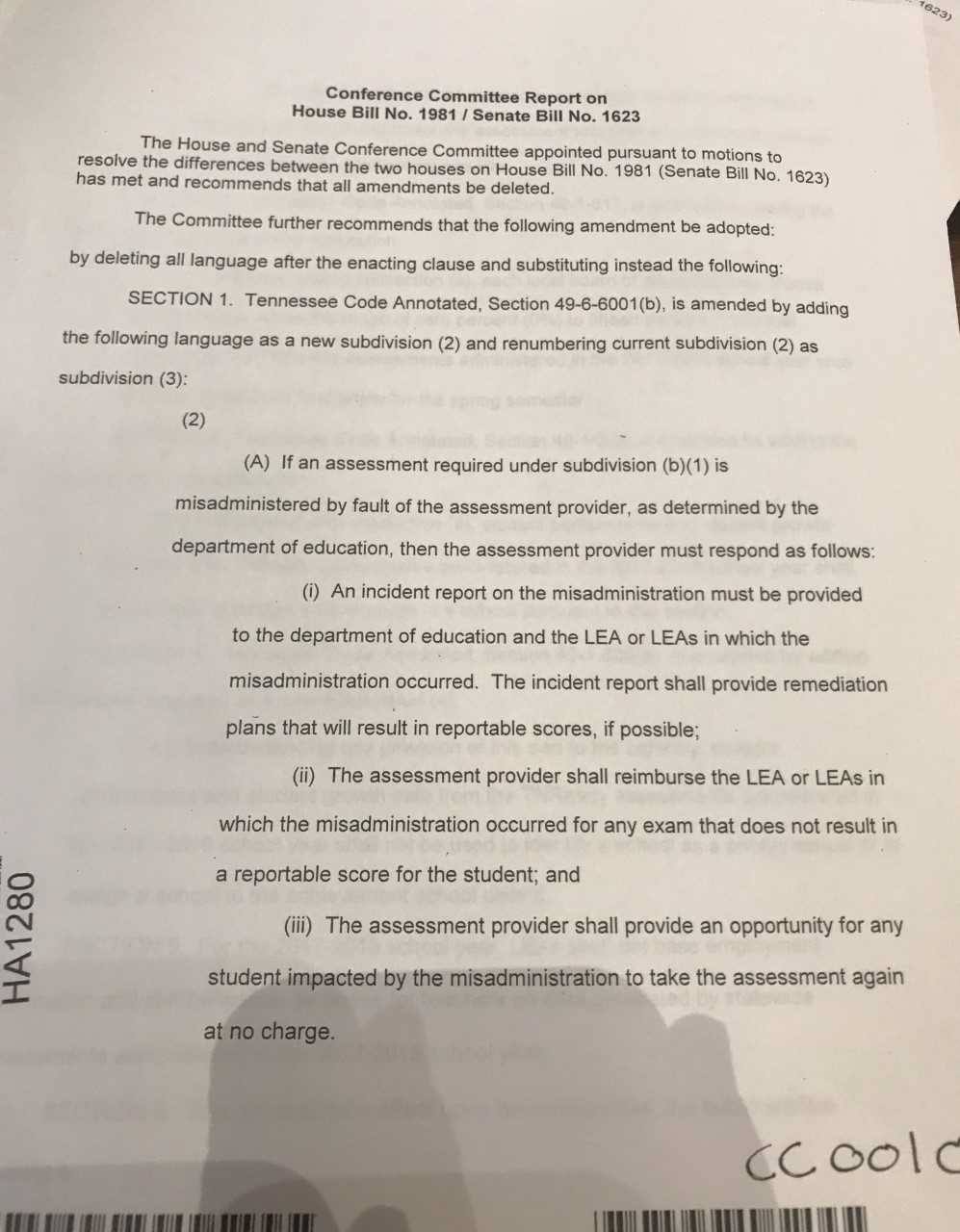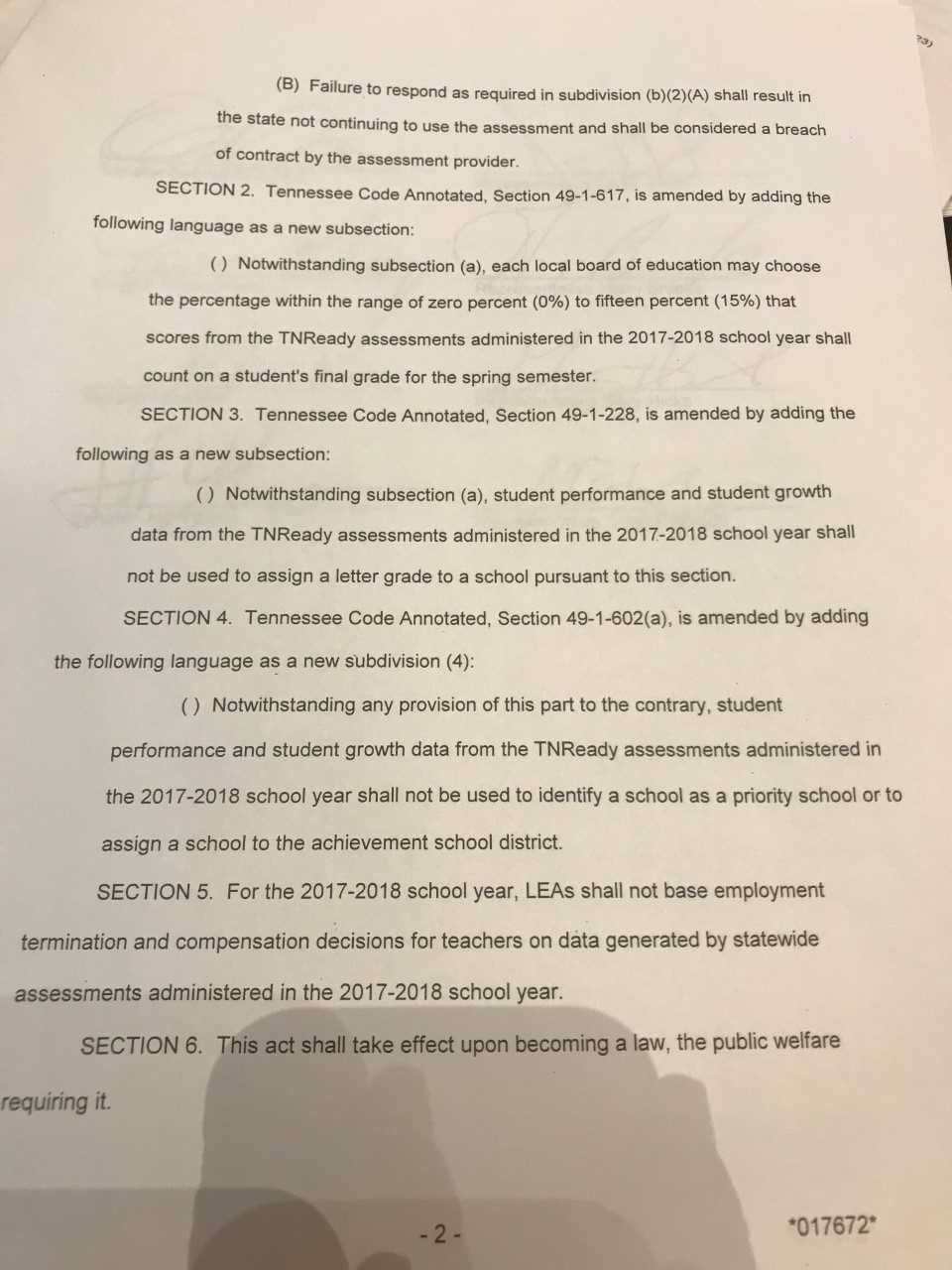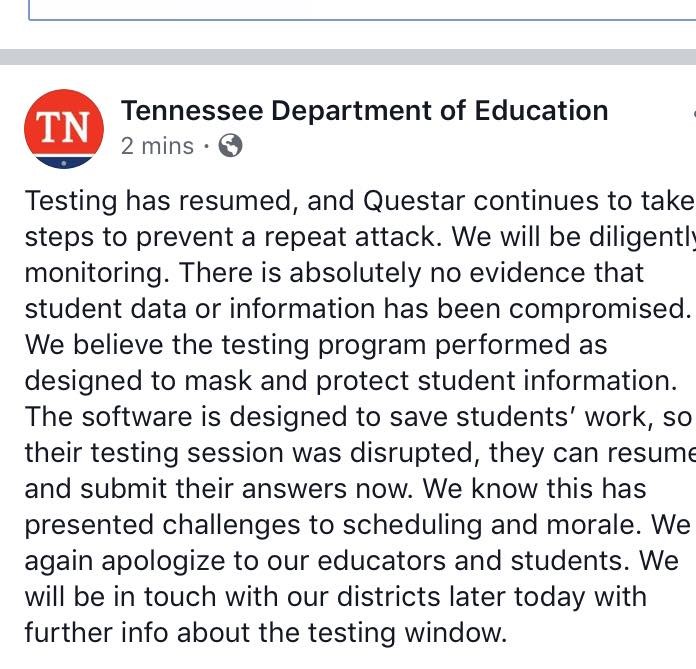Today, amid another round of testing problems, Williamson County Director of Schools Mike Looney tweeted:
Testing Update: TnReady testing challenges persist this morning. This has been the worst state testing process I have ever seen and it’s beyond ridiculous! Nevertheless, I am proud of WCS students and teachers for handling this with grace.
We’re now in the third week of the TNReady testing window and we’ve seen problems of some sort on a majority of those days. In fact, last week, Williamson County posted a list of TNReady problems by day:
Monday, April 16: Login problems affecting approximately 15,000 students.
Tuesday, April 17: Login problems affecting approximately 8,000 students.
Wednesday, April 18: WCS suspended testing to give the TDOE time to correct problems.
Thursday, April 19: Login problems affecting approximately 1,000 students.
Friday, April 20: No significant issues reported.
Monday, April 23: No significant issues reported.
Tuesday, April 24: System defaults caused 100+ students to take the wrong grade level test.
Wednesday, April 25: Delays and canceled testing affecting approximately 8,000 students.
Thursday, April 26: System lockout affecting approximately 15,000 students.
Friday, April 27: No significant issues reported.
That’s just one district, and the problems have been reported by a number of districts large and small across the state.
The Department of Education has blamed the problems on mysterious forces such as hackers and dump trucks, but it seems clear testing vendor Questar is not quite prepared for the job Tennessee is paying them $30 million this year to do.
Oh, and sometimes students get the wrong test.
All of this has caused an outcry among students, parents, and teachers. While one legislator says all the “whiners” should just suck it up, the TNReady trouble this year has caused legislators to take matters into their own hands, passing bills on “holding harmless” and “adverse actions” in order to make clear these tests should not negatively impact teachers, students, or schools.
One might recall that before our state’s testing window started, there was a bit of a warning that trouble might be headed our way. Despite the signs of potential trouble, Questar and the TN DOE expressed confidence in TNReady:
State officials said Thursday they are confident the new digital platform will work under heavy traffic, even as their new testing vendor, Questar, had headaches administering computer-based tests in New York on Wednesday. Some students there struggled to log on and submit their exam responses — issues that Questar leaders blamed on a separate company providing the computer infrastructure that hosts the tests.
It seems that confidence was misplaced.
I’ve talked with testing coordinators who tell me districts will be testing all the way up until graduation. I heard today that even when the login and submission problems were “resolved,” some students returned to their computers only to be issued a test for a subject other than the one they had started earlier in the day.
Student answers have been deleted or lost. Because of the legislation passed at the end of legislative session, TNReady will likely not count in many student’s grades. Teachers and administrators report that whether the scores count or not, students have no confidence in the system and no longer take the test seriously.
Even today, as I began seeing reports of issues around the state, I realized that TNReady being down is no longer news, it’s the norm.
Of course, Tennessee has had some sort of problem with testing or test results for five years now, dating back to the last administration of TCAP.
Here’s what else I realized: This test will just keep going. No one will stop it. Governor Haslam has yet to seriously weigh-in and appears to be fully behind Commissioner McQueen despite years of testing failures. While Directors of Schools complain about the ridiculous excuses from DOE and poor execution from Questar, so far, no district has permanently suspended testing.
Representatives from the Department of Education told lawmakers last week that there will be some valid data from this administration of TNReady. They even said it with a straight face.
So, why won’t this stop? Will any district refuse to subject students to further testing in this environment? Who will finally stand up and say “Enough?”

For more on education politics and policy in Tennessee, follow @TNEdReport
Keep the education news coming by becoming a Patron!












